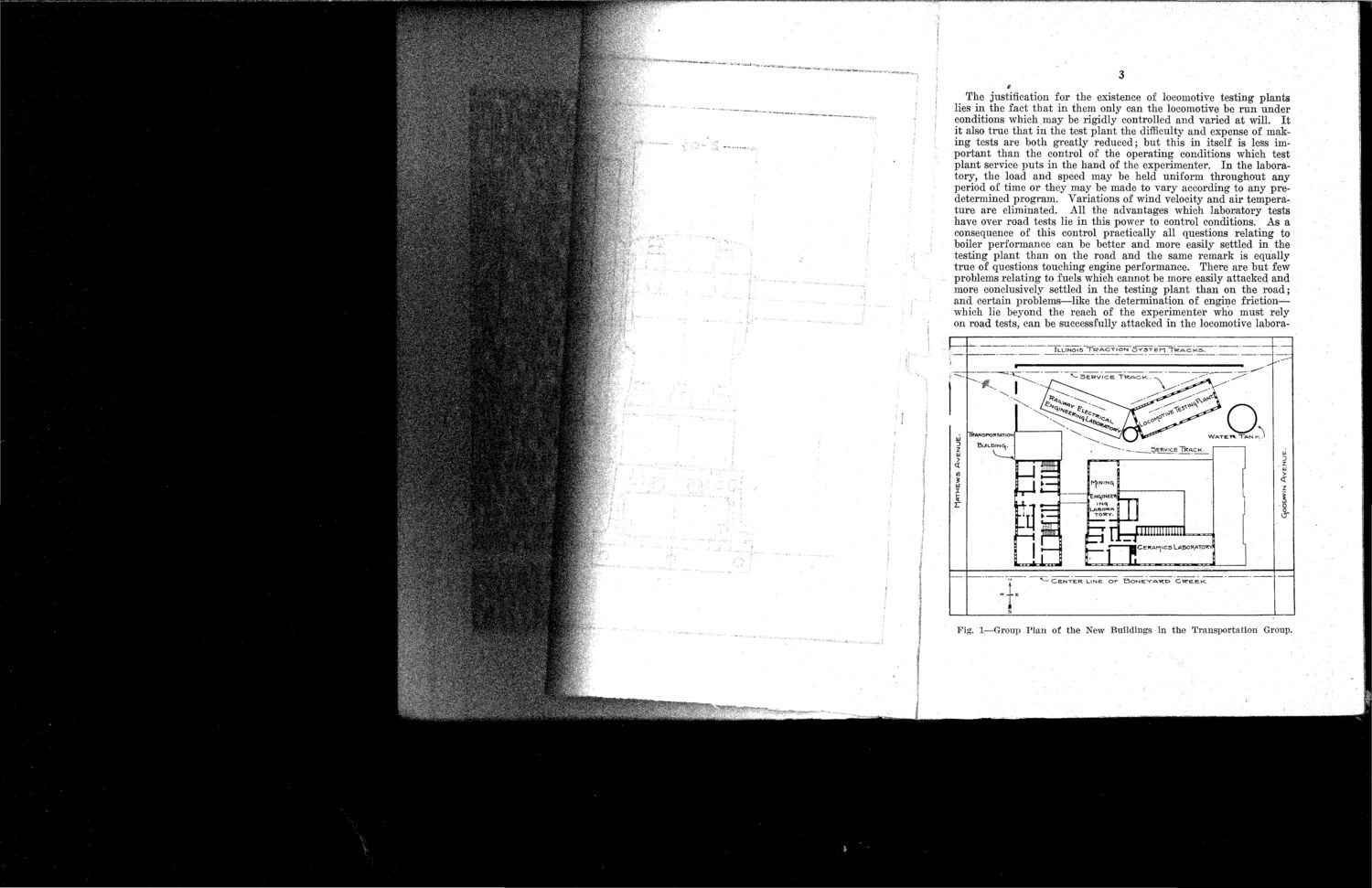| |
| |
Caption: Dedication - Locomotive Testing Laboratory (1913)
This is a reduced-resolution page image for fast online browsing.

EXTRACTED TEXT FROM PAGE:
3 The justification for the existence of locomotive testing plants lies in the fact that in them only can the locomotive be run under conditions which may be rigidly controlled and varied at will. It it also true that in the test plant the difficulty and expense of making tests are both greatly reduced; but this in itself is less important than the control of the operating conditions which test plant service puts in the hand of the experimenter. In the laboratory, the load and speed may be held uniform throughout any period of time or they may be made to vary according to any predetermined program. Variations of wind velocity and air temperature are eliminated. All the advantages which laboratory tests have over road tests lie in this power to control conditions. As a consequence of this control practically all questions relating to boiler performance can be better and more easily settled in the testing plant than on the road and the same remark is equally true of questions touching engine performance. There are but few problems relating to fuels which cannot be more easily attacked and more conclusively settled in the testing plant than on the road; and certain problems—like the determination of engine friction— which lie beyond the reach of the experimenter who must rely on road tests, can be successfully attacked in the locomotive labora- * •--: t% .-<-, %W MfJ...t *> Hs If; :.T-1 Fig. 1—Group - Plan of the New Buildings in the Transportation Group.
| |